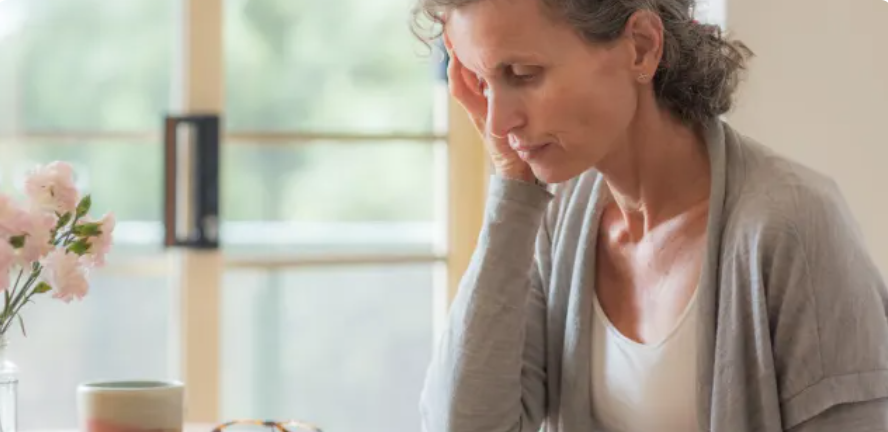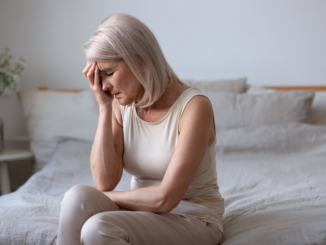
Menopause typically affects women between the ages of 45-55, with the most common symptoms including hot flushes and night sweats.
To help, experts at Healthily have shared information on some of the less common symptoms that women should look out for.
1. Painful sex
During menopause, one of the unknown symptoms can be painful sex. This is due to the changes that the body is going through during this time, which can also have an impact on sex drive.
If you’re particularly worried about this, a GP may be able to help depending on the symptoms that you’re experiencing.
2. Dry skin
Another less known about symptom of menopause is dry skin. The skin may feel thinner, drier, or even less elastic. Moisturiser can help with this, along with an SPF to protect from any further damage.
It’s also possible that your skin can get damaged and bruised easier during menopause.
3. Urinary tract infections (UTIs)
UTI’s can be common when someone is going through menopause, due to the urethra (the passage your urine uses as it makes its way out of the body) becoming shorter and the lining getting thinner.
If you’re concerned about any UTI’s when experiencing menopause, make sure to contact your GP.
4. Fractures
Bones can become weaker when experiencing menopause due to a decrease in oestrogen levels.
If this happens, it can develop quite quickly into Osteoporosis which is a condition that makes bones weaker and more likely to break. It’s important to have a balanced and healthy diet to reduce the risk of this and making small lifestyle changes can help.
Eating foods rich in calcium is recommended (milk, cheese, kale and fish are good examples of these).
5. Brittle nails
One thing to look out for is nails becoming weaker and breaking more easily. Like some of the other symptoms mentioned, this is down to the reduction in oestrogen levels.
Make sure to use a moisturiser and keep your nails trimmed to help with this. If your skin around the nail becomes increasingly sore, make sure to see your GP.
6. Hair loss / thinning
This symptom may be quite worrying for some people, however using soft shampoos, and eating a well-balanced diet can help with hair loss.
Having a low intake of iron, iodine, B-vitamins or zinc are linked to hair loss, therefore eating foods rich in these can help further.
7. Aches and pains
During menopause, your body may start to feel painful and swollen – this tends to be most common in smaller joints such as hands and feet.
It’s important to see a health care professional if these are affecting your day-to-day life dramatically.
8. Problems with memory and concentration
Due to the hormone imbalances experienced during menopause, you may experience trouble concentrating on tasks or remembering things. This can be down to hormone imbalances that the body is going through.
It’s important to see your GP if you’re experiencing any unusual symptoms or worried about any changes to your body. You can find more information on menopause here: https://www.livehealthily.com/menopause/summary
Dr Rebecca Thomas BMBS, BMedSci, MRCGP at Healthily says:
“Many women experience menopausal symptoms that can impact their daily lives. If that’s you, you’re not alone, so don’t suffer in silence. There are a range of self-care and medical treatments that could help you. Just make sure you read reliable sources of information and if in doubt, talk to your doctor, who can help you decide what’s best for you.”



